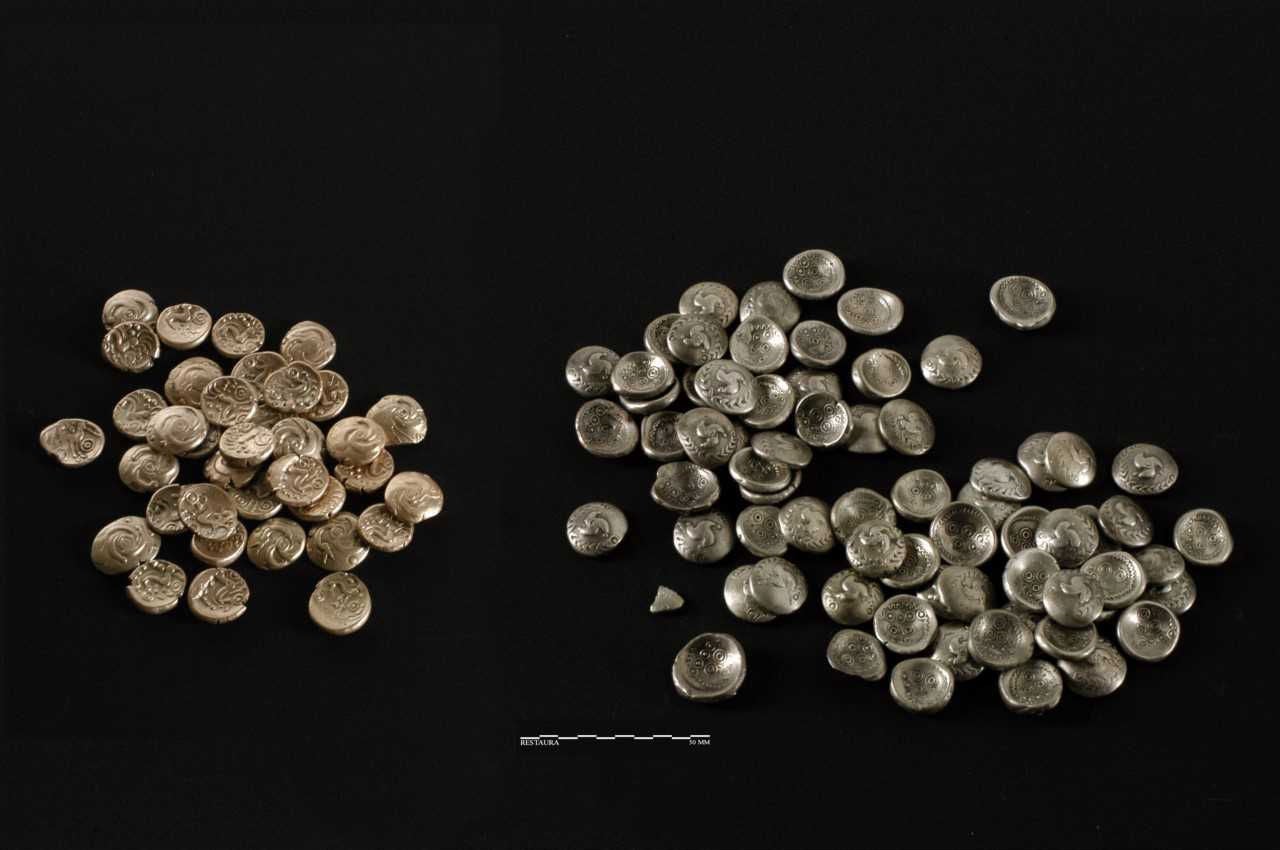Up until recently, archaeological finds made by hobbyist archaeologists would mostly lay around collecting dust in people’s attics. That has changed since the establishment of PAN (Portable Antiquities of the Netherlands), an online database of discoveries made by amateur archaeologists. According to archaeology professor Nico Roymans and VU researcher Stijn Heeren, this is both nice for the hobbyist archaeologists as well as beneficial for science.
Which scientific steps have been taken since PAN was established in 2017?
“It’s become apparent that there are real treasures – think of coins, jewellery and remains of weapons – hidden away in the display cabinets of private collectors. A fantastic fortune of discoveries has been established over the years. In earlier times, we would only make discoveries during official excavations, or whenever new housing estates were being developed and we would stumble upon items accidentally. We now have a richer image of all the material hidden away in the ground and the ways in which these items are spread. For example, we already thought, based on historical sources, that the people from the river area – the Batavi – were actively involved with the Roman army. All of the metallic finds and weapon remains from that time in this area now confirm this.”
Which special discoveries have been made?
“Two important Celtic treasure finds have recently been discovered in Limburg. It’s likely that those silver coins were buried in the 50s BC, the period of the violent Roman conquest by Caesar. We see that during this period in time, more coin treasures were buried than usual. This area went through a crisis period at the time and we’ve seen that more treasures were buried in times of need.”
How was PAN established?
“In 2017, it became legal to search with a metal detector. Before that, people couldn’t register their finds anywhere since they had formally broken the law. It’s important to still document and describe all of these discoveries. The scientific importance is completely dependent on the documentation of the precise location of the discovery and the finders are currently still alive. That’s why we’re now putting all of these finds into our database.”
Are the finders allowed to keep whatever they have found?
“Yes, all we do ismake an inventory and describe and photograph the items. Still, the finders need to stick to certain rules. When a discovery is worth a large sum of money, the finder needs to hand over half of the worth of his or her findings to the owner of the land that the item has been found on.”

Does that cause people to not report their discoveries?
“Sometimes. In rare cases, the commercial worth is so large that some finders have trouble sharing the treasure. In practice, a financial compensation generally solves this. But with cases like this, you merely hope that the finder’s moral compass will cause that person to do the right thing.”
How much money can discoveries be worth?
“Most discoveries are mainly of scientific value. Often people find fragments instead of untainted objects. From a commercial point of view, these fragments aren’t worth much, but scientifically speaking they are. Prices can increase when we’re talking about golden coins. If it happens to be a rare coin, it could sometimes be worth over 10,000 euros. But those are very rare instances.”
What drives hobbyist archaeologists?
“It all comes down to the sensation of finding something, after which the object turns into a puzzle. What is it? Where does it come from? How old is it? When you find something that’s over a thousand years old, it really gives you an adrenaline rush. Finders like to see their puzzles solved.”
How often do you get out there armed with your metal detector yourself?
Roymans bursts out laughing: “Never. I’m far too busy trying to keep track of all the discoveries being made in The Netherlands. Amateur archaeologists are far better at operating those detectors, it’s a skill in itself. Based off of different signals and sounds, you need to be able to predict what it is and how deep it’s buried away. By the way, it’s possible to stumble upon treasures without using a detector, too. In the pre-detector era, I once found a golden, Celtic coin in a field myself, just by looking. I don’t know whether I was just lucky or if I truly have an eye for making discoveries, I guess we’ll never know.”








